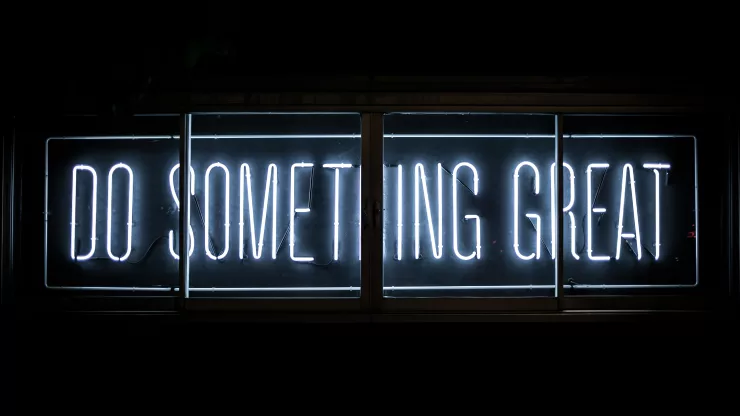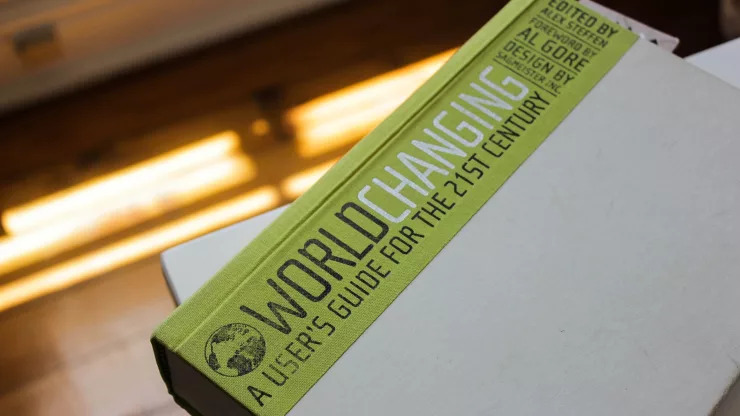The Power of Creativity in Career Success
When we think of career success, we often think of hard work, dedication, and skill. However, one aspect that is often underrated is creativity.
Creativity is not just for artists and writers; it is a valuable asset in any career.
The ability to think outside the box, come up with innovative solutions, and approach problems from a different angle can set you apart in your field and lead to greater success.
Jump to Section
Why Creativity is an Underrated Asset in the Workplace
Many workplaces still value traditional skills like organization, time-management, and technical proficiency. However, as industries become more competitive and complex, creativity is becoming increasingly important.
Creativity allows individuals to adapt to changing circumstances, improve processes, and identify new opportunities. Unfortunately, many workplaces still view creativity as a luxury, rather than a necessity, and fail to cultivate it in their employees.
The Benefits of Being Creative in Your Career
The benefits of creativity in the workplace are numerous. Here are just a few:
- Increased innovation and problem-solving abilities
- Improved communication and collaboration
- Enhanced job satisfaction and motivation
- Greater adaptability and resilience
- Increased opportunities for career advancement
By embracing your creative side, you can achieve greater success and fulfillment in your career.
How to Cultivate and Harness Your Creative Potential
If you want to harness your creative potential, there are a few steps you can take:
- Practice brainstorming and idea generation exercises
- Surround yourself with diverse perspectives and experiences
- Take breaks and allow yourself time to daydream and explore new ideas
- Experiment with new approaches and techniques
- Embrace failure as a learning opportunity
By making creativity a habit, you can unlock your full potential and achieve greater success in your career.
Real-Life Examples of Creativity in Career Success
There are countless examples of individuals who have achieved great success by harnessing their creativity. Here are just a few:
- Steve Jobs: Founder of Apple and pioneer of the personal computer, Jobs was known for his innovative ideas and unique approach to design.
- J.K. Rowling: Author of the Harry Potter series, Rowling’s imagination and creativity has captured the hearts of millions of readers around the world.
- Elon Musk: Founder of Tesla and SpaceX, Musk’s creative approach to technology and engineering has revolutionized multiple industries.
These individuals prove that creativity is not just a luxury, but a valuable asset in any career.
Overcoming Obstacles to Creativity in the Workplace
Despite the benefits of creativity, there are still many obstacles that can hinder its cultivation in the workplace. Here are a few common ones:
- Fear of failure
- Lack of resources or support
- Resistance to change
- Overemphasis on productivity and efficiency
To overcome these obstacles, it is important to create a culture that values creativity and encourages experimentation and innovation.
The Future of Creativity in the Job Market
As industries become more complex and technology advances, creativity will become an even more important asset in the job market. Jobs that require creative problem-solving, critical thinking, and innovation are expected to grow in demand.
By cultivating your creative potential, you can position yourself for success in the future job market.
Conclusion: Embrace Your Creative Side for Career Success
Creativity is not just for artists and writers; it is a valuable asset in any career. By embracing your creative side, you can achieve greater success, fulfillment, and innovation in your career.
Don’t let fear, resistance, or lack of support hold you back. Cultivate your creativity and unlock your full potential.
FAQ
How can I cultivate my creativity in a non-creative job?
There are many ways to cultivate creativity, even in non-creative jobs. Here are a few tips:
- Challenge assumptions and explore new perspectives
- Experiment with new approaches and techniques
- Take breaks and allow yourself time to daydream and explore new ideas
- Surround yourself with diverse perspectives and experiences
- Practice brainstorming and idea generation exercises
What if my workplace doesn’t value creativity?
If your workplace doesn’t value creativity, it can be challenging to cultivate it on your own. However, there are still ways to incorporate creativity into your work.
Here are a few tips:
- Look for opportunities to innovate and improve processes
- Suggest new ideas and approaches
- Surround yourself with colleagues who value creativity
- Seek out projects or tasks that allow for more creative expression
Is creativity something you’re born with or can it be learned?
While some individuals may be naturally more creative than others, creativity is a skill that can be learned and cultivated. By practicing creative exercises, seeking out diverse perspectives, and experimenting with new approaches, anyone can improve their creative abilities.

With a deep passion for personal development, Ben has dedicated his career to inspiring and guiding others on their journey towards self-improvement.
His love for learning and sharing knowledge about personal growth strategies, mindfulness, and goal-setting principles has led him to create My Virtual Life Coach.
Contact Ben at [email protected] for assistance.




